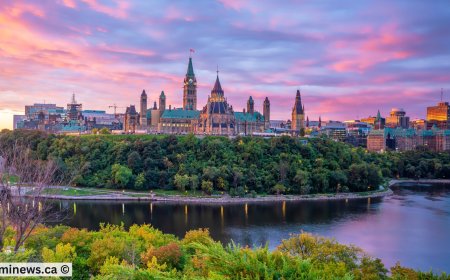Electricians (except industrial and power system) Opportunities in Canada: A Comprehensive Immigration, Salary, and Duties Guide
Welcome to the pathway to Canada immigration for skilled professionals and trade workers. This guide is specifically tailored for Electricians (except industrial and power system) looking to work and settle in Canada, offering a deep dive into the essential aspects of immigration and employment in this field.
Introduction
In this article, we will explore the career and immigration prospects for Electricians (except industrial and power system) in Canada. We will discuss the profile description, main job duties, education and licence requirements, skills needed, median and retirement age, salary details, and possible visa options for Electricians in Canada. Whether you are a current Electrician looking to relocate to Canada or are considering a career in this field, this article will provide you with valuable information to help you make informed decisions about your future prospects in Canada.
What is the Profile Description of a Electricians (except industrial and power system) as per the Canadian National Occupation Classification (NOC) Standards?
Electricians (except industrial and power system) are responsible for various tasks including laying out, assembling, installing, testing, troubleshooting, and repairing electrical wiring, fixtures, control devices, and related equipment in buildings and other structures. They are typically employed by electrical contractors or maintenance departments of buildings and establishments, although some may also work as self-employed individuals. Their role is crucial in ensuring the safety and functionality of electrical systems in various settings.
What are the Main Job Duties of a Electricians (except industrial and power system) in Canada?
- Read and interpret drawings and electrical code specifications to determine wiring layouts for new installations
- Install, replace, and repair lighting fixtures, switches, and circuit breaker panels
- Test continuity of circuits using test equipment to ensure compatibility and safety of system
- Troubleshoot and isolate faults in electrical systems and remove and replace faulty components
- Conduct preventive maintenance programs and keep maintenance records for electrical equipment
What are the Education, Certifications, and Licensing Requirements to Work as Electricians (except industrial and power system) in Canada?
In order to pursue a career as an Electrician (except industrial and power system), individuals must have a completion of secondary school. Additionally, a four- to five-year apprenticeship program is typically required. Trade certification is mandatory for construction electricians in several provinces, including Newfoundland and Labrador, Nova Scotia, and Alberta. However, certification is voluntary in other provinces and territories such as British Columbia, the Yukon, and Nunavut. Furthermore, trade certification is compulsory for electricians specializing in domestic and rural areas in Newfoundland and Labrador and Ontario. Those interested in becoming electrical control (machine) builders may obtain voluntary certification in Ontario. Qualified construction electricians can also obtain a Red Seal endorsement by successfully completing the interprovincial Red Seal examination.
What Essential Skills are Required for Electricians (except industrial and power system) to succeed in Canada?
To be successful in the profession of Electricians (except industrial and power system), individuals must possess a variety of essential skills. These skills include the ability to install underground wiring and cables, replace and repair electrical controls and panel boxes, splice, join and connect wires, test and measure voltage, loads, ground faults integrity of circuits, troubleshoot and isolate faults, connect power to audio and visual equipment, install surface mount and/or overhead cables, install power generation, stand-by power generation and power conditioning systems, ground and bond electrical equipment, systems and structures including swimming pools and hot tubs, renovate electrical systems in residential and commercial structures, conduct preventive maintenance programs, as well as read and interpret blueprints, maps, drawings and specifications. Mastering these skills is crucial for success in the field of electricians, allowing individuals to effectively carry out a wide range of tasks and responsibilities.
What is the Median Age and Retirement Age for Electricians (except industrial and power system) in Canada?
The median age of skilled professionals working as Electricians (except industrial and power system) is 37 years, indicating that the majority of individuals in this occupation are in the prime of their careers. On average, these professionals retire at the age of 63, suggesting that they have a fairly long and fulfilling career in this field before transitioning into retirement. This data highlights the importance of experience and expertise in the field of electrical work, as individuals tend to accumulate valuable skills and knowledge over the course of their careers as Electricians.
How many job openings exist for Other Electricians (except industrial and power system) in Canada, and what's their provincial distribution?
There are a total of 305 job openings for Electricians (except industrial and power system) in Canada. The province with the highest number of job openings is British Columbia with 129 openings, followed by Quebec with 64 openings, and Ontario with 57 openings. Saskatchewan has 29 job openings, Alberta has 11, Nova Scotia has 10, New Brunswick has 2, Manitoba and Prince Edward Island each have 1, and Yukon also has 1 job opening. British Columbia has the maximum number of job openings for Electricians, while Manitoba and Prince Edward Island have the minimum number of job openings. These job openings indicate a strong demand for Electricians in various provinces across Canada.
What is the hourly wage or salary of Electricians (except industrial and power system) in different Provinces of Canada?
In Canada, electricians (except industrial and power system) earn varying wages depending on the province they work in. The highest wages for this profession are found in Alberta, with a high wage of $45.00, a median wage of $36.00, and a low wage of $20.00. Saskatchewan follows closely behind with a high wage of $44.25, a median wage of $32.60, and a low wage of $18.00. Ontario also offers competitive wages for electricians, with a high wage of $45.00, a median wage of $31.00, and a low wage of $17.31. On the other end of the spectrum, Prince Edward Island has the lowest wages for electricians, with a high wage of $28.00, a median wage of $22.00, and a low wage of $15.00. Overall, the wages for electricians in Canada range from $15.00 in Prince Edward Island to $45.00 in Alberta.
What are the various visa options available for Electricians (except industrial and power system) migrating to Canada?
Electricians (except industrial and power system) are currently in high demand in Canada, making them eligible for Category based Express Entry Invitation draws for Canadian PR under Trade Occupations Category. The Express Entry system is a point-based system that assesses candidates based on factors such as age, education, work experience, and language proficiency. Provincial Nominee Programs also offer opportunities for Electricians to gain permanent residency in specific provinces that are in need of skilled workers. Employer Sponsored Work Visas are another option for Electricians to consider, as Canadian employers can sponsor foreign workers for temporary work permits. Additionally, there may be other visa options open to Electricians (except industrial and power system) depending on their individual circumstances. To learn more about the visa options available and discuss your specific situation, book an appointment with our professionals today.
Have Questions or Need Assistance?
If you have any queries or require assistance with your immigration plans, we're here to help. Our experienced immigration consultants are ready to provide personalized guidance tailored to your specific needs.
Don't hesitate to reach out and schedule an appointment today. Whether you're seeking clarification on immigration processes, exploring visa options, or need support with documentation, we're dedicated to assisting you every step of the way.
Book an appointment with our team to discuss your immigration goals and receive expert guidance for your journey to Canada.
What's Your Reaction?
 Like
0
Like
0
 Dislike
0
Dislike
0
 Love
0
Love
0
 Funny
0
Funny
0
 Angry
0
Angry
0
 Sad
0
Sad
0
 Wow
0
Wow
0




































































